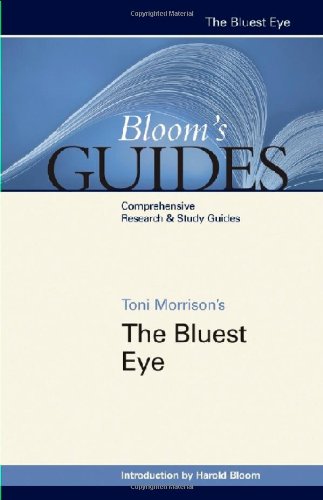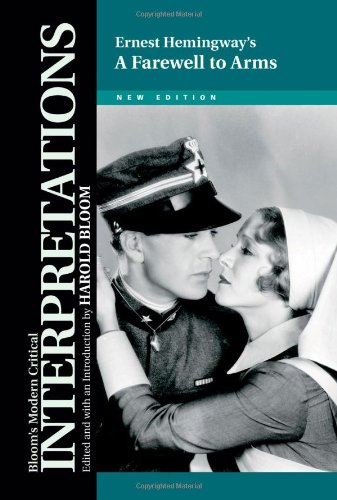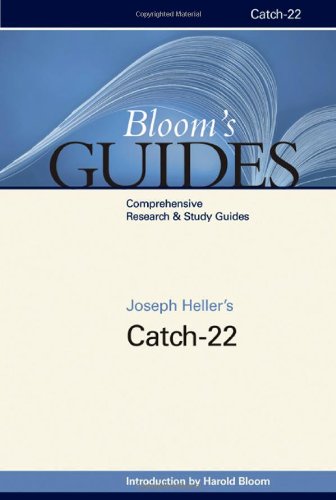-
T.S. Eliot
Sterling Professor of Humanities Harold Bloom
Hardcover (Chelsea House Publications, Oct. 1, 2010)No further information has been provided for this title.
-
The Bluest Eye
Sterling Professor of Humanities Harold Bloom
Hardcover (Blooms Literary Criticism, Nov. 1, 2009)- Concise critical excerpts that provide a scholarly overview of each work- The Story Behind the Story, detailing the conditions under which the work was written- A biographical sketch of the author, a descriptive list of characters, an extensive summary and analysis, and an annotated bibliography.
-
John Steinbeck's the Grapes of Wrath
Sterling Professor of the Humanities Harold Bloom
Hardcover (Chelsea House Publications, )None
-
Dark Humor
Blake Hobby, Sterling Professor of Humanities Harold Bloom
Library Binding (Blooms Literary Criticism, Jan. 1, 2010)Part of the Literary Themes series, this book features original essays and excerpts from critical analyses.
-
The Odyssey
Sterling Professor of Humanities Harold Bloom
language (Chelsea House Publications, Dec. 1, 2006)The second of the two great epic poems attributed to Homer, this poem takes place after its hero, Odysseus, sacked the sacred citadel of Troy and describes his perilous, 10-year voyage home.
-
Ernest Hemingway's a Farewell to Arms
Sterling Professor of Humanities Harold Bloom
(Blooms Literary Criticism, Jan. 1, 2009)It has been suggested that Hemingway's art has both the virtues and limitations of lyricism - including maximum intensity. This collection of essays examines A Farewell to Arms.
-
A Raisin in the Sun
Sterling Professor of Humanities Harold Bloom
eBook (Blooms Literary Criticism, Jan. 1, 2009)This classic American drama tells the story of the Youngers, a family that must struggle with their own inner divisions, in addition to the racist attitudes of society at large. This guide also features an annotated bibliography and a list of other works by the author.
-
Catch-22
Sterling Professor of Humanities Harold Bloom
Hardcover (Blooms Literary Criticism, Jan. 1, 2009)Joseph Heller's World War II satire, 'Catch-22', poses the moral dilemma of how to remain sane in an insane world. This guide offers a varied selection of critical essays as well as an annotated bibliography.
-
Ralph Waldo Emerson
Sterling Professor of Humanities Harold Bloom
(Chelsea House Publications, Nov. 1, 2006)Ralph Waldo Emerson was one of America's most influential thinkers. His essay, Nature is considered to be the founding document for the Transcendentalism movement, and his influence can be seen in the writings of Whitman, Thoreau, Melville, and countless others. A synthesis of the most relevant interpretations of Emerson and his work, this freshly updated edition offers a first-rate study guide on the 19th-century essayist and philosopher at a level of depth that will lend new insight and inspire research.
-
Macbeth
Sterling Professor of Humanities Harold Bloom
eBook (Chelsea House Publications, Nov. 1, 2010)'Bloom's Guides' are the successors to 'Bloom's Notes' & 'Bloom's Reviews', offering a comprehensive reading & study guide to an important work of literature. Each book includes a biographical sketch of the author, a descriptive list of characters, summary & analysis.
-
J. D. Salinger's The Catcher in the Rye
Sterling Professor of Humanities Harold Bloom
eBook (Blooms Literary Criticism, Jan. 1, 2009)The new full-length critical essays in this title provide a comprehensive critical look at this classic by J. D. Salinger. Master scholer Harold Bloom introduces the novel in this study guide, which also features a chronology, a bibliography, an index, and notes on the contributors.
-
Alfred, Lord Tennyson
Sterling Professor of Humanities Harold Bloom
language (Blooms Literary Criticism, July 1, 2010)Alfred, Lord Tennyson (1809-92) was born in Lincolnshire, the sixth of eleven children of a clergyman. After a childhood marked by trauma, he went up to Cambridge in 1828, where he met Arthur Hallam, whose premature death had a lasting influence on Tennyson's life and writing. His two volumes of Poems (1842) established him as the leading poet of his generation, and of the Victorian period. He was created Poet Laureate in 1850 and in 1883 accepted a peerage. In T. S. Eliot's words, 'He has three qualities which are seldom found together except in the greatest poets: abundance, variety and complete competence. He had the finest ear of any English poet since Milton.'